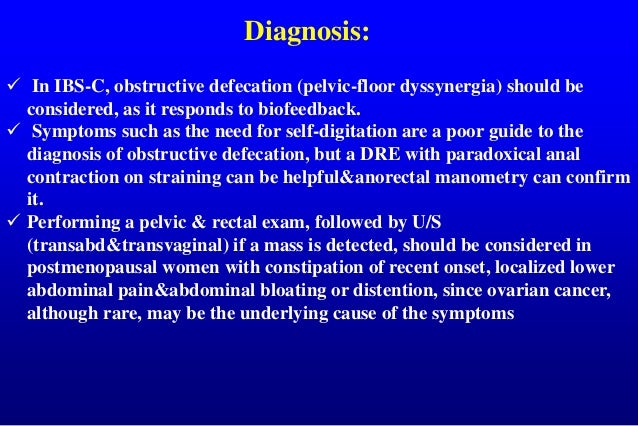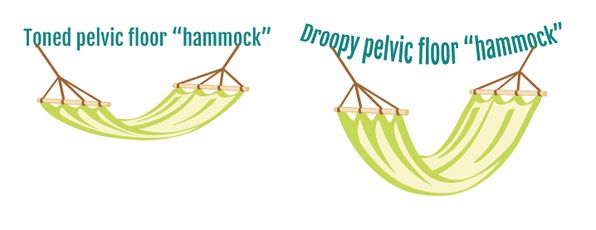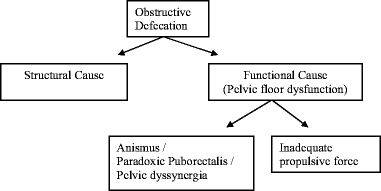Pelvic Floor Dyssynergia Cause

Treatment of colonic inertia.
Pelvic floor dyssynergia cause. Your pelvic floor is the group of muscles and ligaments in your pelvic region the pelvic floor acts like a. Pelvic floor dyssynergia anismus malfunction of pelvic musculature causes imbalance between contraction and relaxation of pelvic floor muscle and prevent regular stool removal. To put it simply the pelvic floor muscles are overactive tight or non relaxing. Pelvic floor dyssynergia is a behavioural disorder that is the result of an unintentional habit.
Pelvic floor dysfunction is a common condition where you re unable to correctly relax and coordinate the muscles in your pelvic floor to urinate or to have a bowel movement. Pelvic floor dyssynergia is a painful condition that can affect your quality of life. To determine if there was a singular cause that led to your pelvic floor dyssynergia or if multiple events played a part your gp will. Blood test to evaluate the associated.
To understand the actual reason doctors conduct different diagnostic examinations which include. It is often a habit of an ineffective posture and behaviour you have when you try and have a bowel movement. Dyssynergic defecation is a health condition with difficulty passing stool due to problems with the muscles and nerves of the pelvic floor. Pelvic floor dyssynergia is known by many different names including.
Possible causes of pelvic floor dyssynergia. If you re a woman you may also feel pain during sex and if you re a man you may have problems having or keeping an erection erectile dysfunction or ed. Pelvic floor dysfunction is the inability to control the muscles of your pelvic floor. It is marked by the failure of pelvic floor muscles to relax or a paradoxical contraction of the pelvic floor muscles with defecation.
Offering a wide range of treatments including biofeedback and specialized gastrointestinal pain management techniques you can take comfort knowing that experts at stanford health care can help you feel better. An example of anorectal dysfunction that can contribute to constipation is a condition called pelvic floor dyssynergia also referred to as anismus. We are working closely with our technical teams to resolve the issue as quickly as possible. Examination may include an internal exam via the vagina or rectum observing the movement of the pelvic floor muscles as well as palpation of the structures of the belly and.

















